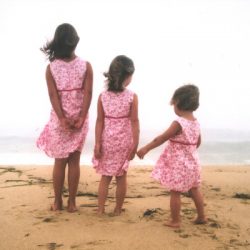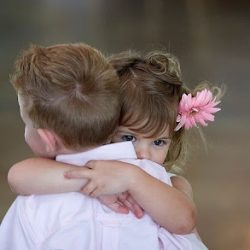The death of a brother or sister is a significant loss. Yet, many of us will face the loss of a sibling more than once. Yet this is one of the most neglected types of grief, especially in adulthood. (For more information on how grief affects children, please read how children are affected by sibling loss in this section.)
Following a sibling’s death, support usually focuses on the surviving spouse and their children or the parents who have lost their child. Rarely is it on the siblings. A sibling often has less input into the funeral, memorial service, or other arrangements. Sentiments and condolences offered to them often lead to questions about how the deceased’s “immediate” family or parents are faring. It shouldn’t be forgotten that this is a significant loss for a sibling, and surviving siblings are dealing with their own profound grief or mourning.
As mentioned in the main Understanding Grief section, your grief will be individual and unique. How you grieve and for how long will be different than for anyone else, and you need to allow yourself to grieve in your own way.
Why sibling loss is unique

A brother or sister is someone who shares a unique co-history with you. This person was integral to your formative past, for better or worse. Your brother or sister shared common memories, critical childhood experiences, and family history. When death takes your brother or sister, it also takes away one of your connections to the past. That brother or sister knew you in a particular way, unlike those who know you now as an adult.
Consequently, a constant is gone and may make you feel insecure. Although you may or may not have had frequent contact with your sibling, at least you knew another family member was there. A sibling holds a symbolic place in your life, even if your brother or sister did not have an impact on your current day-to-day activities. This brother or sister’s death can make you feel older and indicate that your family is dwindling. Because you likely have the same genetic background, the death of a sibling may increase concerns about your mortality.
In some cases, the death of a sibling may suddenly make you an only or the eldest child — creating a profound shift in the role you may have held for all or most of your life. When combined with your natural grief, this new role can make it difficult to wade through the many complicated emotions that arise when a sibling dies.
Some adults who have lost an adult sibling may experience a change in their relationship with their parents. Since siblings often feel their grief isn’t fully acknowledged, and their parents are focused on overcoming their loss, they can feel abandoned by their parents. When they need them the most, their parents are disabled by their own grief. Surviving siblings must get the support they need from others in their family or community. Doing so will help meet the surviving sibling’s needs and temper any feelings of resentment or abandonment.
Why sibling grief can be complicated
Mourning after the loss of a sibling can be complicated for several reasons. The ambivalence that is usually present in a sibling relationship may give rise to guilt, and guilt is known to complicate mourning. You may have had a close relationship with your sibling or a distant one — either extreme and everything in between can affect your guilt or feelings of abandonment after your brother or sister’s death. You might experience guilt, sadness, and regret if the relationship was never what you ideally would have wanted. Careers and families may have meant you could not spend as much time together since you became adults. Your survival can be another source of guilt, especially if you recall when you wished your sibling would disappear. These are normal reactions to sibling loss, and you shouldn’t judge yourself if these feelings arise.
Another factor complicating sibling grief is the need to support your parents in their suffering, which can draw on your energy and emotional reserves, making it harder to care for yourself. You may question if you have the “right” to mourn as profoundly as they do or as a surviving spouse or children do. Know that you do have the right and the need to grieve and deserve the same support and care as others affected by your sibling’s death.
Some valuable ideas for coping with grief are found on this site and recommended readings in the upper column on the right. There are also online, and local groups for those who have lost a sibling — being part of a community of people who have suffered a similar loss may be helpful.
How children are affected by sibling loss

The death of a brother or sister at any age profoundly changes the lives of surviving siblings. But children who lose a sibling often face long-term challenges that differ from those of adults who lose a sibling. Research shows that the death of a sibling adversely affects surviving children’s health, behavior, schoolwork, self-esteem, and development. Surviving siblings may be troubled throughout life by a vulnerability to loss and painful upsurges of grief around the date the sibling died. They may develop distorted beliefs about hospitals, doctors, and illness.
Many bereaved siblings describe feeling sad, lonely, and different from their peers. The impact of the loss may be felt most by the brother or sister who shared the most significant amount of “life space” with the one who died. Siblings who shared a room, played, or spent their spare time together are likely to be most profoundly affected. Just like adults, many children who lose a sibling can experience intense feelings of guilt. When a brother or sister dies, they remember all the fights and name-calling, seeing themselves in their memory as the “bad” child and the dead sibling as the good one. This can result in feeling that they are not good enough.
A child’s experience of losing a sibling depends partly on their understanding of death, which is associated with age and developmental level. You can learn more in the children and grief section.
Other topics that may be useful to you include Mourner’s Bill of Rights, the recommended readings to the upper right, and the related links there too.


